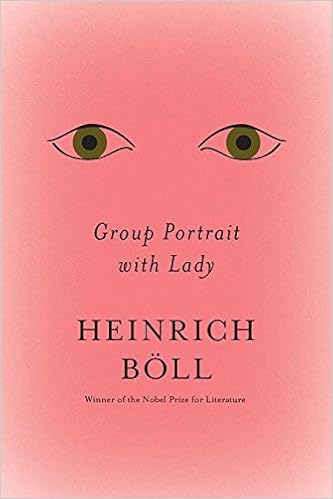
This book looks at life in what may be the most terrible period of human history -- Germany in the 1930's and 1940's -- and finds that, pretty much, life went on. Life under increasingly restricted, surreal, and irrational circumstances, life in the midst of death (our central characters actually end up living beneath a cemetery) and life that seems to go on only because of an animal will to live, but still -- life. Boll's 1971 novel centers on an unnamed author's effort to find out about one Leni Pfieffer, a war widow at the center of an oddly assorted (and often very odd) group of people -- parents, employers, lovers, friends, and so on. . The author may be nameless, but he is definitely identified (as Au) and his personality and interest interweave with the rest of the story. He traces Leni's story from her bourgeoise childhood and youth, through her adventures and misadventures at school (including a close relationship with a Jewish nun who is concealed -- and starved -- in her convent), through her early doomed love for a young man who is shot, up to her apotheosis as the lover of a Russian prisoner of war. He dies, but she survives, as does her son, very much reduced in circumstances by the machinations of those who should have treated her better. There is, however -- oh, I won't spoil it by discussing the ending.
What I found so fascinating about this book was the way the characters simply try to go about their lives, Nazis or no Nazis, bombs or no bombs. It gets more and more difficult, until the last days of the war when chaos reigns -- they don't know whether or not the war is over nor do they much care, they just don't want to get shot. Boll's style is not linear, which can be irksome in the earlier parts of the book, but which is entirely appropriate as the novel unfolds. This is a terrific book.
No comments:
Post a Comment